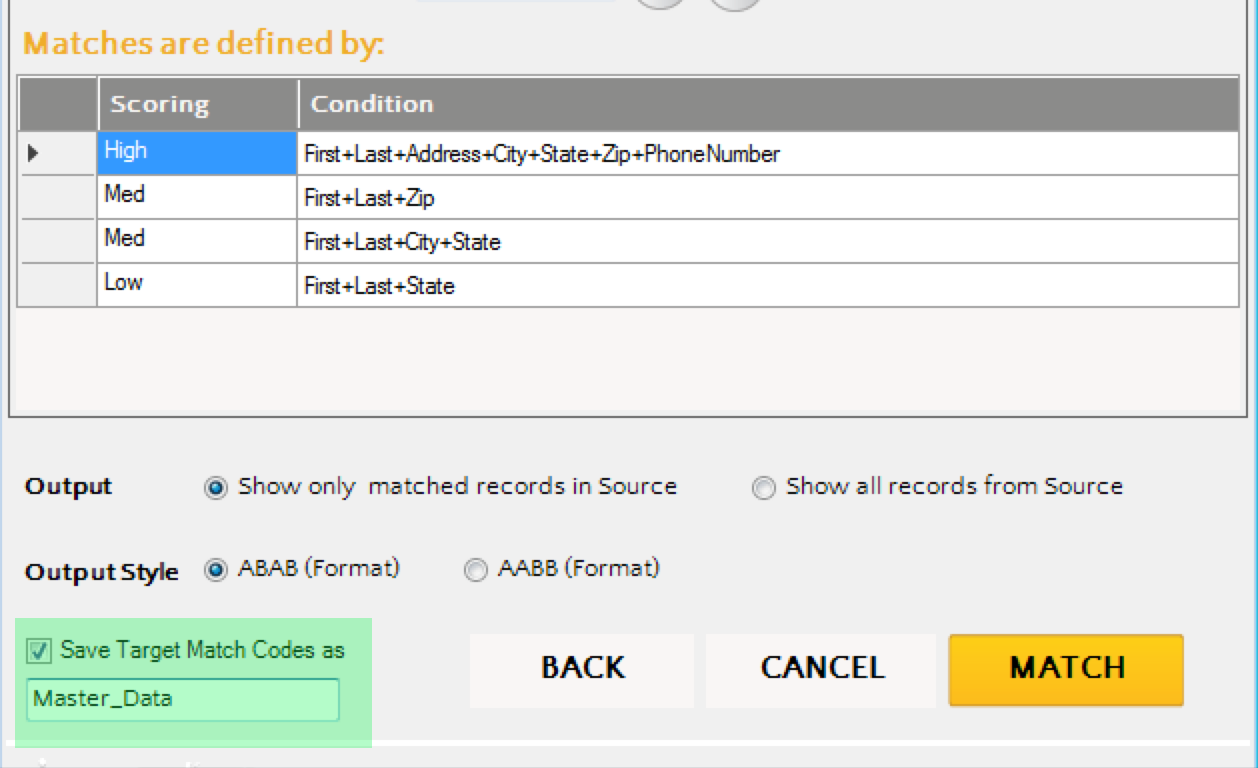Improving Match Performance
When using Aim-Smart to match data, there are several steps you can do to improve performance.
First, when matching two sources, always make the second source (called the target) the larger of the two databases. The reason for this is that the sound-alike engine is applied only to Source A. There is processing time involved in creating each sound-alike, and additional time in storing them for matching later.
Second, if the target (source B) is greater than a few hundred thousand records, you may want to save the results to a Custom Database for use later. Thus, for any subsequent matches, performance is greatly improved. I have done extensive testing where source B had 3.5 million records and matching ran within minutes when source A had up to 10,000 records (to be precise 8 min 52 sec). To save the records to a custom database, use this feature when matching:

You can then reuse the “Master_Data” database by pressing the Custom DB Matching icon within the toolbar.
Third, each additional condition that is added, makes matching slightly slower. In my testing I found that going from one match condition to five increased processing time about 50%. You may not want nor be able to reduce the number of match conditions used, but something to keep in mind.
Lastly, use a solid state drive. 🙂 It’s amazing how much they improve I/O performance.
One thought on “Improving Match Performance”